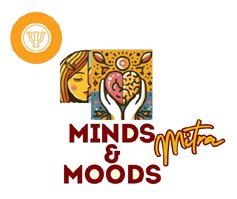Breaking the Cycle: A Guide to Habit Counselling
Habits are the routines we perform almost automatically, shaping our lives for better or worse. While some habits, like exercising or reading, are beneficial, others—such as procrastination, overeating, or excessive screen time—can negatively impact our well-being. Habit counselling is a focused type of Personal counselling that helps you understand why these patterns exist and provides the tools to change them. It’s an effective way to address specific behaviors that may be contributing to issues like Workplace stress, Academic stress, or a general lack of Confidence building.
Symptoms and Causes of Unhealthy Habits
Recognizing a habit’s negative impact is the first step toward change. It’s often the subconscious nature of habits that makes them difficult to break without professional guidance.
Symptoms:
- Repetitive, unwanted behaviors: Engaging in actions you want to stop but feel powerless to control.
- Emotional distress: Feeling guilt, frustration, or shame after engaging in the habit.
- Negative consequences: The habit leads to health problems, financial issues, or strains on relationships, which can be addressed through Relationship counselling or Couple therapy.
- Difficulty in other areas of life: The habit interferes with work, school, or personal goals, leading to Burnout counselling or Executive coaching becoming necessary.
Causes:
Habits are often formed as a response to triggers, both internal and external. Common causes include:
- Stress and anxiety: Habits can be a coping mechanism for stress, which can also be addressed with a Depression therapist or Anger management counselling.
- Emotional regulation: Using a habit to avoid or deal with difficult emotions. This may be linked to underlying issues that require Trauma therapy or PTSD counselling.
- Boredom or lack of stimulation: Engaging in a habit to fill a void in your routine.
- Environmental cues: The presence of certain people, places, or objects can trigger the habitual behavior.
- Underlying mental health conditions: Habits may be a symptom of a larger issue, like a Mood disorder or issues that require specialized support such as a Child psychologist or Support for special needs children.
The Therapeutic Approach to Habit Change
A Psychotherapist or Mental Health Counsellor who specializes in behavior change will guide you through a structured process. The procedure often involves a combination of assessment, introspection, and practical skill-building.
Identification and Analysis: The counsellor helps you identify the specific habit and the triggers, routines, and rewards associated with it. This involves understanding the “habit loop.”
Cognitive Restructuring: Therapies like Cognitive Behavioral Therapy (CBT) and Rational Emotive Behavior Therapy (REBT) are used to challenge the Negative thinking that supports the habit. The therapist helps you reframe your thoughts from “I can’t change” to “I can learn new skills.”
Behavioral Techniques: A therapist will teach practical strategies to break the habit and form a new, healthier one. This may include:
- Mindfulness and awareness training: Using techniques from Dialectical Behavior Therapy (DBT) to become more aware of triggers and the urge to act on the habit.
- Replacing the habit: Substituting the negative habit with a positive one that fulfills the same need or reward.
- Environmental control: Modifying your surroundings to remove triggers and make the new behavior easier.
Behavioral therapy forms the core of this treatment, focusing on observable behaviors and the environmental factors that influence them.
Meet Rrimi Bodalkar: A Compassionate Expert in Nagpur
For those in Nagpur seeking professional guidance, Rrimi Bodalkar is a highly recommended Sr. Psychotherapist / Mental Health Counsellor. Holding an M.A. in Psychology (Counselling) and a PGDMH (Clinical), she is also an NSDC Certified Psychometric Analysis & Learning Style Assessment specialist. Her expertise includes specializations in CBT, REBT, and DBT, making her adept at treating a wide range of issues from Mood disorder interventions and Personality development counselling to PTSD counselling and Trauma therapy. She is committed to providing personalized care and creating a supportive environment for individuals, couples, and families to address their mental health concerns.
Frequently Asked Questions (FAQs)
Q1: What’s the difference between a habit and an addiction?
A: A habit is a routine behavior, while an addiction involves a physical or psychological dependency. While habit counselling can help with problematic habits, a severe addiction may require more intensive treatment.
Q2: Can habit counselling help with procrastination?
A: Yes. Procrastination is a common habit rooted in fear, anxiety, or perfectionism. Counselling can help you identify the underlying causes and develop strategies to overcome this pattern.
Q3: Can a Psychologist help with a habit like overeating?
A: Absolutely. A Psychologist can use behavioral and cognitive techniques to address the emotional and psychological triggers behind eating habits. They can also conduct a Personality assessment or IQ testing psychologist if needed to understand underlying factors.
Q4: How long does it take to change a habit?
A: There’s no set timeline. It depends on the individual, the habit’s complexity, and the commitment to the process. The goal of counselling is not just to break the habit but to build long-lasting skills for future change.
Q5: Is habit counselling for children as well?
A: Yes. A Child psychologist can use play therapy and other specialized techniques to help children with habits like thumb-sucking or nail-biting. Parenting support counsellor services are also available to guide parents on how to handle these behaviors effectively.

